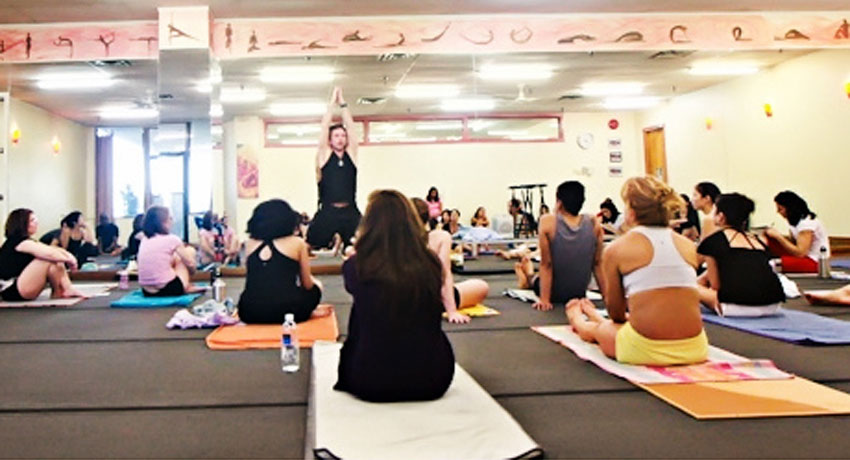Can Bikram Yoga Treat Depression?
Massachusetts General Hospital (MGH) announced this week that researchers are launching a new pilot study to examine a potential link between Bikram yoga and improved mental health in clinically depressed patients.
Despite Bikram yoga’s growing popularity, no previous medical study has looked at the possible mental health benefits of this form of hot yoga. This MGH study is looking to fill in where previous studies have come up short.
Approximately 15 percent of adults are affected by Major Depressive Disorder, or MDD, in the U.S. and yoga’s regular intense exercise and mindfulness have previously proven beneficial as antidepressant treatments. However, the heat involved in Bikram yoga (rooms are heated to 105 degrees with 40 percent humidity) and its strict 26 pose routine, have been previously unstudied.
Dr. Maurizio Fava, director of the MGH Depression Clinical and Research Program and professor of psychiatry at Harvard Medical School, said in a press release last week:
“Although there is only minimal empirical evidence, heat has traditionally been used to promote wellness. The heated environment may enhance the antidepressant effects of this form of yoga.”
The pilot trial currently underway is designed to examine the safety, tolerability, and effectiveness of Bikram yoga on participants compared to control group of participants on a waitlist. Participants are either assigned an eight week waitlist period or an eight week Bikram yoga regimen. Once a participant has completed the waitlist period, they will then complete the eight week yoga program. Researchers will be looking closely at the effects on participants’ depression and quality of life as well as certain physiological warning signs of depression such as inflammation, autonomic arousal, and levels of stress hormones. If the study’s findings show that Bikram yoga’s strict style and heated rooms improve mental health in patients with MDD, this form of yoga may come to replace potentially dangerous antidepressant drugs.
Dr. David Mischoulon, director of research at the MGH Depression Clinical and Research Program and co-investigator in the study said last week:
“This is an important study. If hot yoga proves to be effective, it would be an excellent and safe treatment option for people who have not benefited from regular antidepressants, cannot tolerate their side effects, or choose not to take them.”
The study is looking to randomly select 30 adults, ages 18 to 80, in good physical health who are experiencing the symptoms of MDD to participate. Researchers say there are already more than 60 participants eager to get involved.
All participants will receive free psychiatric and medical care—no health insurance required—and free yoga sessions courtesy of Bikram Yoga Boston studio owners Jill and Brad Koontz.



